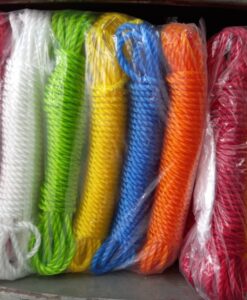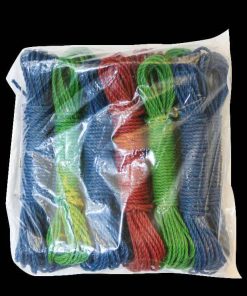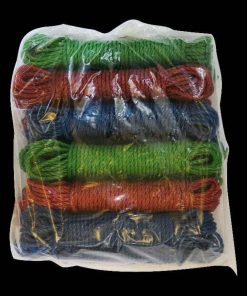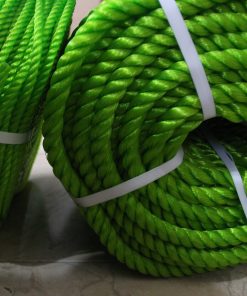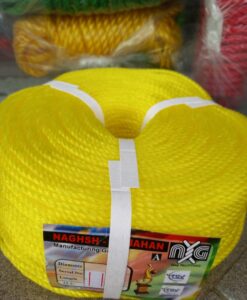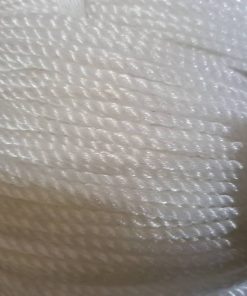Rope has been used by humans since the distant past as a means for packing, transporting goods and other diverse applications.
Plastic rope for packing goods, household use, restraining tents, oil industry, fishing industry, gas and petrochemical industry, drilling wells, construction and military projects and projects, transportation, net weaving (such as fishing nets, soccer goal nets and …), marine and shipping industries and … have many applications.
Today, plastic ropes have many applications due to their better quality and greater variety, and they have mostly replaced ropes made of natural fibers, which we briefly mention below about the advantages of using this product:
This product can be used in different temperatures.
Its weight is less than half the weight of sisal and cotton threads.
It has a uniform thickness and is very resistant at the knot point.
It is resistant to lime and other alkaline and acidic substances and therefore does not rot.
It can be maintained in any weather condition.
Depending on your needs, you can make a rope that is lighter than water (floating) or heavier than water (submersible).
It does not hurt when working with it.
Plastic ropes or nylon ropes are made of synthetic fibers called polyethylene and polypropylene.
Raw materials in the production of this rope consist of two types of materials. First-grade raw materials are purchased from petrochemicals, and first-grade raw materials are obtained from plastic and nylon recycling.
The size of the plastic rope starts from 2 mm and continues up to 24 mm. As the size of the ropes increases, the weight of each meter increases and the number of threads used to produce them increases exponentially.
Plastic rope is usually packed in 35 to 40 kg bags, each bag contains between two and six ropes, and this difference is directly related to the size of the product, that is, as the size of the rope decreases, the number of ropes in each bag increases.
Plastic ropes from 2 mm to 6 mm are called packing ropes. Plastic ropes are supplied per kilogram.

 فارسی
فارسی



